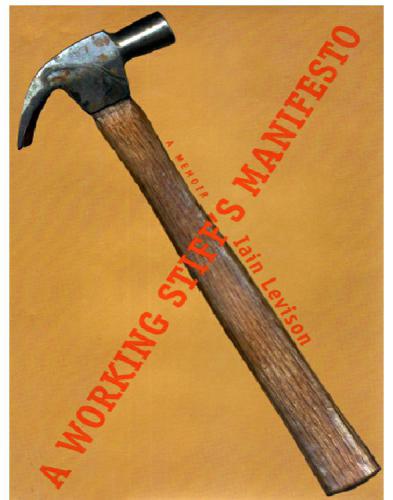
A Working Stiff's Manifesto
A Memoir
کتاب های مرتبط
- اطلاعات
- نقد و بررسی
- دیدگاه کاربران
نقد و بررسی

March 18, 2002
Levison is a "modern-day Tom Joad" who, over the last decade, has worked 42 jobs in six different states, including mover, fish cutter, cook, caterer and cable TV thief. He recalls those jobs in this entertaining, unusual mix of autobiography and social commentary reminiscent of Barbara Ehrenreich's Nickel and Dimed: On (Not) Getting By in America. Levison imagines himself a new breed of itinerant laborer—a college graduate with a $40,000 English degree. His America is a desperate and brutal country, a place where you're hired with a promise of insurance after 90 days, then fired on the 89th; where criminals beat each other to a pulp in Alaska fisheries, and truckers make fraudulent entries in their logbooks in order to keep up with impossible schedules. But Levison's droll sense of humor eases him (and his readers) through the tough times; he recalls catering a party and bleeding into the guests' Merlot, expounds on the definition of "résumé" ("the French term for 'page full of bullshit' ") and proposes a new motto for Dutch Harbor, Alaska ("What fatal flaw in your character made you wind up here?"). As both a writer and an employee, Levison can come off as a trifle obnoxious—some of his workplace misfortune he definitely brings on himself—and he's mercilessly scornful of the corporate yes-men and unscrupulous characters he works with. Yet his moral vision more than makes up for it; he's a sharp-eyed, impassioned critic of the American workplace. (Apr.)Forecast:Although any book that targets itself toward people without a steady paycheck would seem to be doomed, Levison's just might do well, given today's high unemployment rates and the book's undeniable originality.

April 15, 2002
A college graduate with a degree in English, Levison has held 42 jobs in the past ten years. He quit 30 of those jobs, was fired from nine, and can't remember the other three. He is currently unemployed. This 164-page screed details his employment history, but it is obvious that Levison's problem is as much his attitude as the poor market for college graduates. He declares an English degree is only good for secretarial work (ignoring such jobs as public relations and journalism), and he applies for jobs for which he clearly is not qualified and seems surprised when they don't work out. Most of the positions he has held are low-wage, dead-end jobs (e.g., Alaskan fish cutter, furniture mover, heating oil deliveryman, etc.), but he makes little effort to improve his lot. Moving up, Levison observes, is "asking for trouble." His employment history is an entertaining read, but there is no reflection or analysis that would be useful to others. Not recommended. Christopher Brennan, SUNY Coll. at Brockport
Copyright 2002 Library Journal, LLC Used with permission.

April 1, 2002
Ten years after getting army experience and an English degree, Levison had 42 jobs behind him and an insightful tale to tell about the working world. Promised training in electronics by a military recruiter ("my first experience with an experienced corporate bullshit artist"), he learned to handle a rifle and interrogate Russian and East German prisoners, and his degree in English is described as "a $40,000 fly swatter." Through classified ads and word of mouth, he got jobs--as a fish cutter, restaurant worker, oil deliveryman, and computer wire installer, among others--and learned some tips and truths about work. And the truth, to Levinson, is that the corporate world treats inequitably and has basic disregard for what it considers disposable workers, who number in the millions (and include the college-educated) and just scrape by. Barbara Ehrenreich's " Nickel and Dimed" [BKL Ap 1 01] was a startling reportorial view of low-wage work, but it was based on an assignment, while Levinson describes his life; his account belongs beside hers, and it's funnier, too.(Reprinted with permission of Booklist, copyright 2002, American Library Association.)

























دیدگاه کاربران